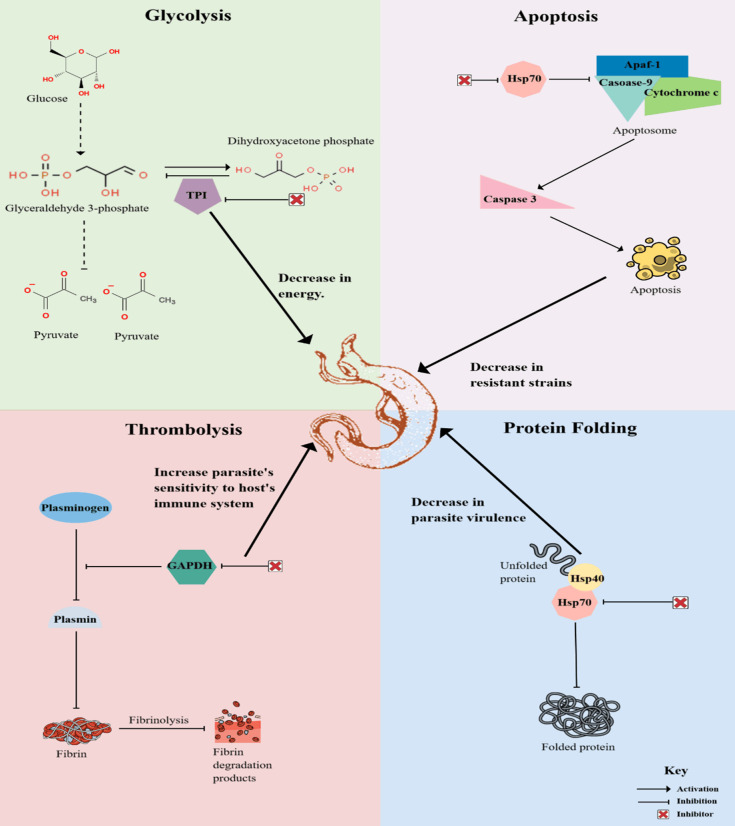Figure 1.
Model depicting the effects of inhibiting specific moonlighting proteins for developing novel drugs to treat schistosomiasis. Glycolysis plays a crucial role in the survival of schistosomes by providing them with energy to sustain their life cycle within the human host. Inhibiting TPI will thus decrease energy for the worms since the other downstream processes of the pathway will also be blocked. Once PZQ has been administered, it is expected that schistosomes will undergo apoptosis; however, Hsp70 blocks this pathway, which means that the inhibition of this protein will lead to a decrease in PZQ-resistant strains. Schistosome worms coat themselves with GAPDH to undergo thrombolysis and dissolve the blood clots that form around the worm. The inhibition of this protein will, therefore, increase the sensitivity of the worms to the host’s immune cells so as to undergo degradation. Protein folding is essential in parasite survival for the worms to keep replicating. The inhibition of Hsp70 will lead to degraded schistosome proteins, thus decreasing the parasite’s virulence.

